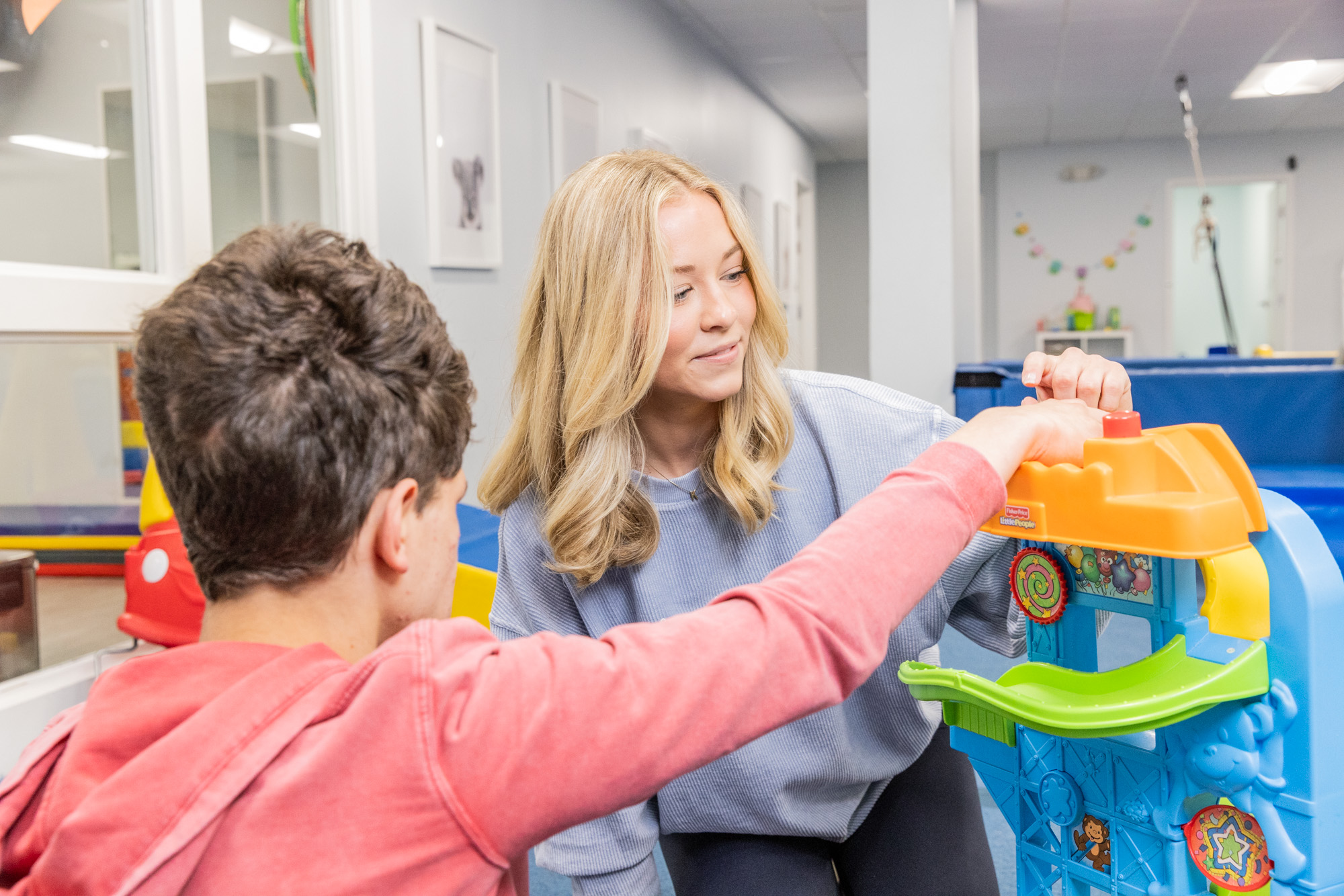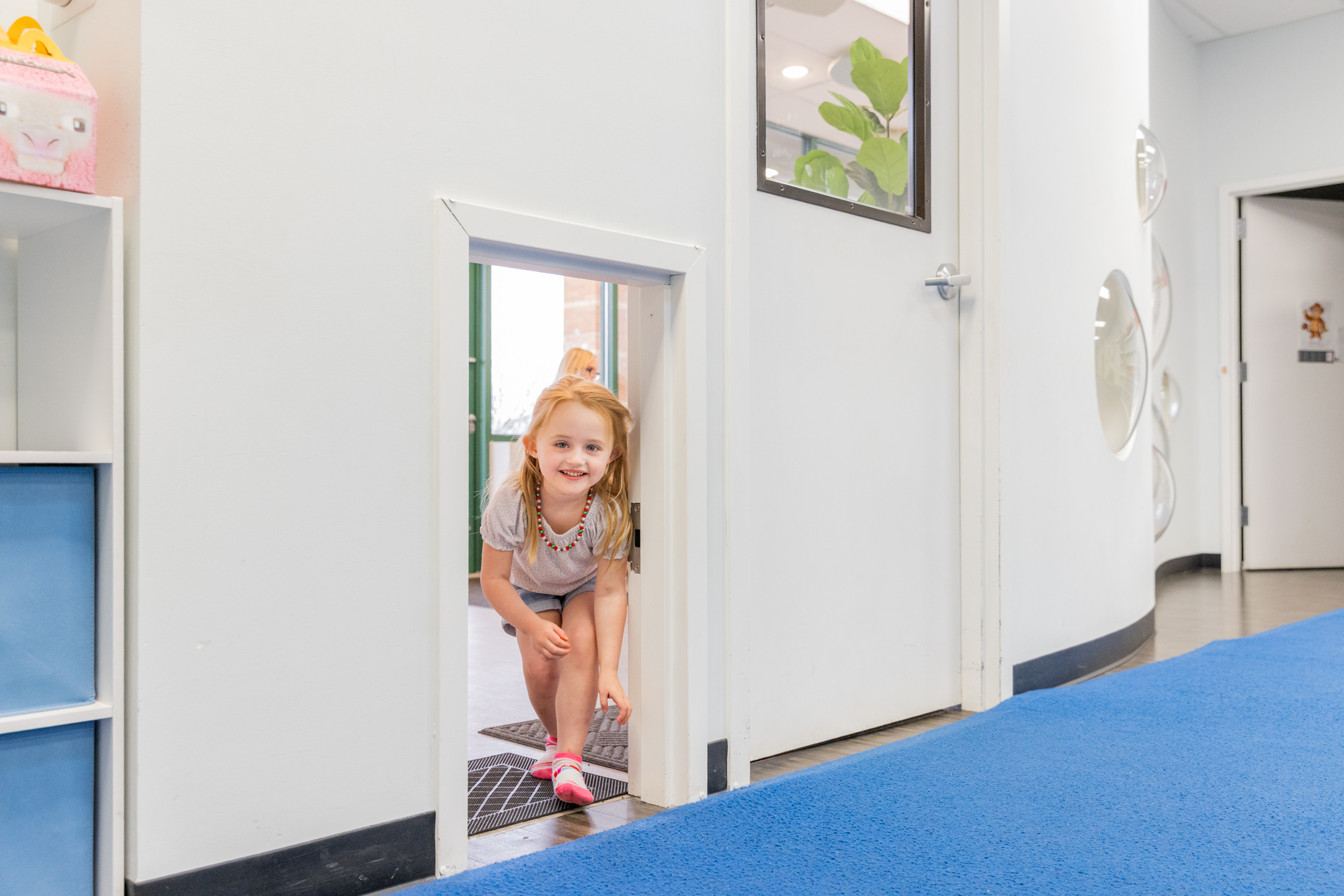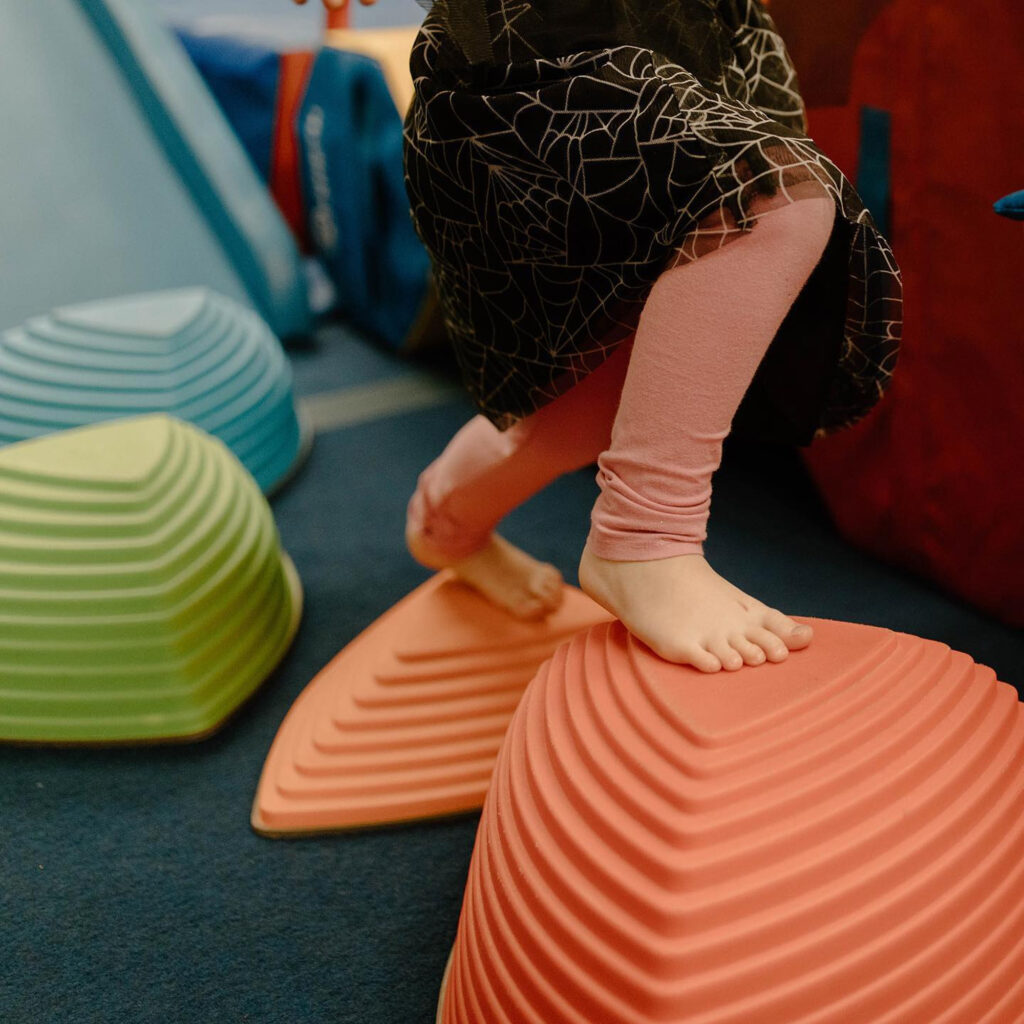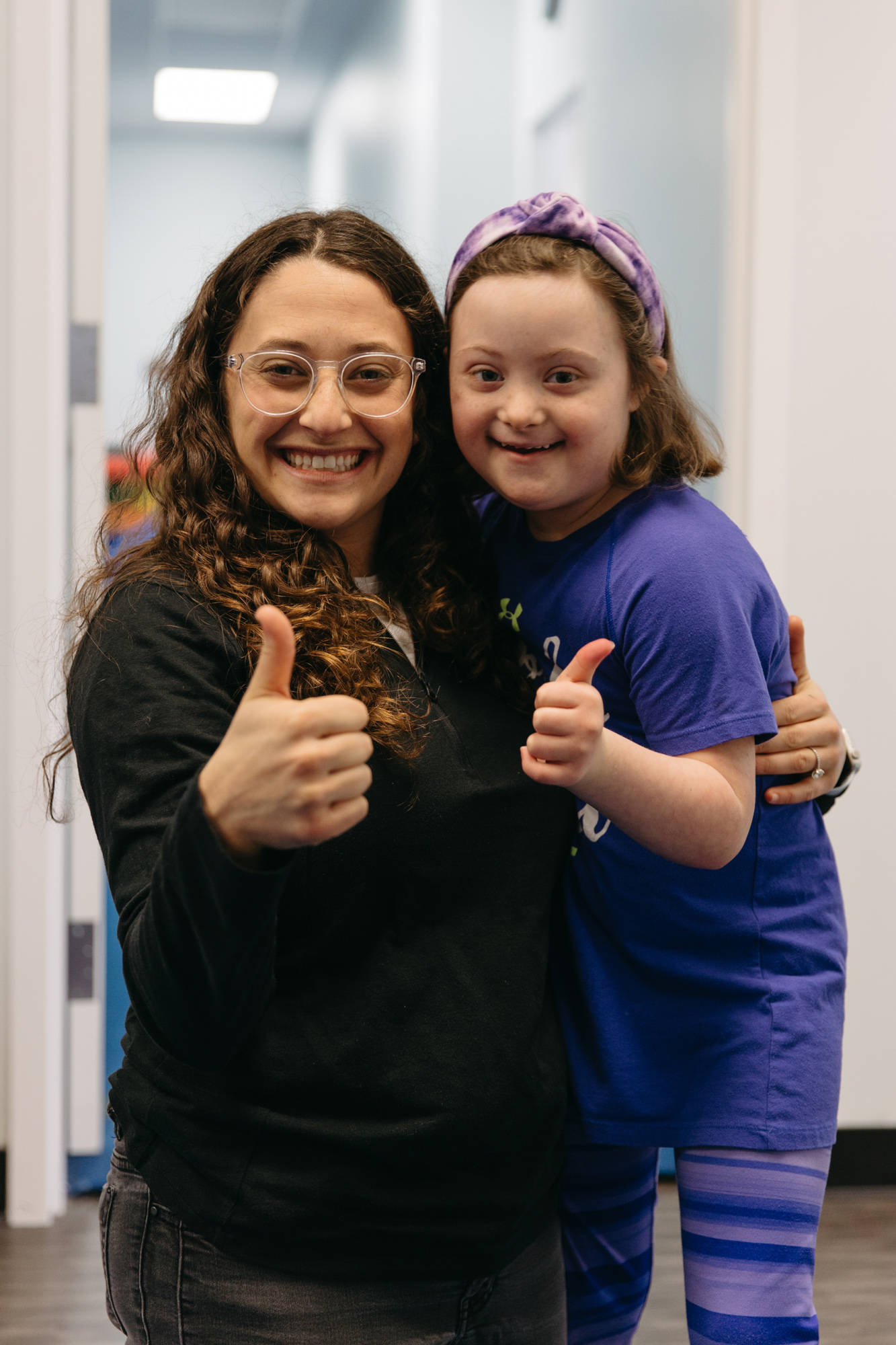



Request Evaluation
Let us know a little about you and your child. Once you fill out the evaluation form, our team will be in touch to help you get started at Playabilities. We look forward to working with your family!
Intake Process FAQ
Here are some FAQs we often receive from families:
What does the intake process look like?
- You made the most important step – you reached out for help by completing our sign-up form!
- Once we have your request, a member of our team will request a script from your child’s doctor if we don’t already have one on file.
- We’ll call to verify your insurance coverage, as well as invite you to our patient portal. It’s important that families complete the paperwork, especially the medical history, so we have a thorough understanding of your child’s history. We’ll also request an authorization from your insurance, when needed.
- We’ll call you to schedule your evaluation at a time mutually convenient for the evaluating therapist and your family.
- The evaluation will take place. At the end of your evaluation, our goal is for you to understand how pediatric therapies can benefit your child, you’ll leave with immediate strategies to improve quality of life, and you’ll understand the therapeutic recommendations for how often we’d like to see your child.
- Our team will confirm your ongoing schedule with you, which is often 2-3 times per week per therapy needed.
Do I need a script from a physician?
We do require a physician referral/script for therapy services. If your child has an autism diagnosis, we will need a copy of the diagnostic evaluation as well. You can request these documents from your doctor’s office, and they can be sent to us via one of the following methods – via fax to: 816.222.0679 or via email to Therapy@playabilities.org
Do you accept my insurance?
Good news! We want as many families to have access to our therapy services as possible. Playabilities for Sensational Kids accepts most major health insurance providers in the Kansas City area. This list can change, so we ask that you please check your benefits with your plan prior to your visit. If your policy is not listed or if you have any questions, please contact our office at 913-213-3531. We accept the following insurances: Aetna, Blue Cross Blue Shield of Kansas City, Cigna (out-of-network), Tricare, and United Health Care Community Plan (Kansas Medicaid).
Note: While we do not accept plans from select carriers, including but not limited to United Healthcare, UMR, and GEHA, families may elect to pay for services out-of-pocket and request reimbursement by submitting a detailed itemized statement to their plan to maximize their benefits.
Will my ongoing treatment be the same day and time as my evaluation?
We will schedule evaluations in one-time appointment slots with one of our evaluating therapists. These appointments are fixed and may not fall within your family’s ongoing, weekly availability.
Ongoing therapy appointments will be scheduled after the evaluation is complete and therapy recommendations have been made. Your availability will be considered when scheduling ongoing sessions, so please only list times on your availability form that apply to your family’s ongoing, weekly availability.
Do you have a waitlist?
We currently have a significant waitlist for after school hours (3:00-7:00). If your child needs after-school hours, we will need to put them on our after-school waitlist at this time. Therapy slots open up when a current client discharges from therapy; it may take 12+ months to reserve an after-school time. These times are typically first offered to current clients, so if you have flexibility to commit to an earlier therapy time, we will do our best to move your child to an after-school time when it becomes available.
I need help today, not next week when my child’s evaluation is scheduled. What can you offer right now?
We offer parent coaching sessions by the hour that are self-scheduled, and not part of a client’s treatment plan. This service entails an Occupational Therapist meeting with parents virtually to discuss their concerns, and one of our expert therapists, Julie Morrow, provides coaching and suggestions. Julie has her Advanced Certification in DIR Floortime, providing her with the skill set needed to coach parents, teachers, and professionals about the relationship-based model. As a mom herself, she wants to empower other parents by providing them with the knowledge and tools they need to better understand and connect with their children, while helping them promote child development through the Functional Emotional Developmental Capacities (FEDC’s).
Client Testimonials
We have helped many families in the KC metro area learn the tools they need to grow and thrive. Our community of sensational kids and families speaks to the lasting impact our therapists have on their lives. Explore Playabilities client testimonials!
Our Services & Approach
At Playabilities, we offer individualized occupational, physical, and speech therapy services to children from newborn through adolescence. Our therapists use play-based activities to build functional skills while appealing to your child’s interests. We also coach parents on new strategies for viewing behavior and engaging with your child, empowering you to help your child thrive.
Areas of Expertise
- Sensory processing disorder
- Children with delays in hitting developmental milestones
- Children with feeding aversion or feeding difficulties
- Children with ADD/ADHD or attention and concentration deficits
- Children with behavioral concerns and difficulty with emotional regulation
- Dyspraxia/developmental coordination disorder/postural disorders
- Autism spectrum disorder
- Anxiety
- Apraxia of Speech
- Articulation & Speech sound difficulties
- Auditory Processing and Phonemic Awareness Difficulties
- Social and pragmatic communication
- Fluency and stuttering
- Cerebral palsy/hemiplegia
- Children with developmental delays
- Traumatic brain injury
- Brachial plexus injury
- Childhood stroke
- Children with motor difficulties or dyspraxia
- Children with genetic, orthopedic, neuromuscular, or neurological conditions
- Down syndrome
- Visual impairments, including visual motor and visual perceptual deficits
- Torticollis and plagiocephaly
- Toe Walking
- Children having difficulty in school for various reasons






